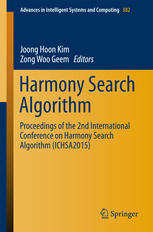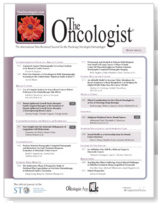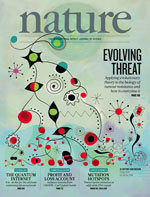
Elisabeth Bik, a microbiologist at Stanford, has for years been a behind-the-scenes force in scientific integrity, anonymously submitting reports on plagiarism and image duplication to journal editors. Now, she’s ready to come out of the shadows.
With the help of two editors at microbiology journals, she has conducted a massive study looking for image duplication and manipulation in 20,621 published papers. Bik and co-authors Arturo Casadevall and Ferric Fang (a board member of our parent organization) found 782 instances of inappropriate image duplication, including 196 published papers containing “duplicated figures with alteration.” The study is being released as a pre-print on bioArxiv.
An example the paper uses of “duplication with alteration” is this Western blot where a band has been duplicated: Continue reading One in 25 papers contains inappropriately duplicated images, screen finds









